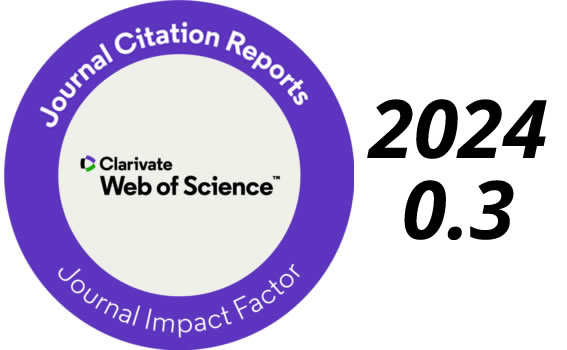Administrative strategy for the management of drinking water in rural communities of the state of Chihuahua
DOI:
https://doi.org/10.24850/j-tyca-2025-03-06Keywords:
Drinking water, rural communities, management, strategy, committeeAbstract
Water management in rural communities is one of the essential actions for greater efficiency in the administration and operation of drinking water systems. This is why is necessary to design strategies that supports the strengthening of the different activities carried out. The general objective of this research was to design an administrative strategy for water management in rural communities in the state of Chihuahua. The research approach was mixed, the design was non-experimental and cross-sectional, the sampling was non-probabilistic for convenience, the situation of the committees was described and analyzed, eight dimensions with their respective indicators were proposed and validated by experts. The main results obtained were that the Central Board of Water and Sanitation and the committees do not have an administrative strategy that allows knowing the current state of efficiency and sustainability. One of the essential problems in solving rural communities by the normative body is to provide support to the committees in the arrangement of their infrastructure, since the communities do not have the resources or the skills and technical knowledge to solve any problem that is presented to them in the operation. Validation through Pearson correlations, linear regression, K-means, and gap analysis allowed us to conclude that the application of the designed strategy is feasible.
References
Baeza, M. F. (1987). Reglamento de las juntas rurales de agua potable. Recuperado de https://agua.org.mx/wp-content/uploads/2010/05/Chihuahua_JuntaRural.pdf
Bernabé-Crespo, M. B. (2022). Water mix implications and perspectives for potable water supply in southeastern Spain. Agua y Territorio/Water and Landscape, (20), e5714. DOI: 10.17561/at.20.5714
Bernal, A., Rivas, L., & Peña, P. (2014). Propuesta de un modelo de co-gestión para los pequeños abastos comunitarios de agua en Colombia. Perfiles Latinoamericanos, 22(43), 159-184.
CESCR, Comité de las Naciones Unidas de Derechos Económicos, Sociales y Culturales. (2002). Consejo Económico y Social. 29º Periodo de sesiones. Ginebra, Suiza: Comité de las Naciones Unidas de Derechos Económicos, Sociales y Culturales.
Duarte, J. C. (2012). Ley del Agua del Estado, Última Reforma POE 2017.02.22/No. 15 de Chihuahua. Recuperado de https://agua.org.mx/wp-content/uploads/2017/06/Ley-del-Agua-del-Estado-de-Chihuahua-22-febrero-2017-.pdf
Hernández-González, J., & Tagle-Zamora, D. (2020). Percepciones sociales del proceso de municipalización del agua potable en comunidades periurbanas de León, Guanajuato. Región y Sociedad, 32, e1257. DOI: 10.22198/rys2020/32/1257
INEGI, Instituto Nacional de Estadística, Geografía e Informática. (2003). Síntesis de información geográfica del estado de Chihuahua. Recuperado de https://www.inegi.org.mx/contenido/productos/prod_serv/contenidos/espanol/bvinegi/productos/historicos/2104/702825224332/702825224332_1.pdf
INEGI, Instituto Nacional de Estadística, Geografía e Informática. (2010). Resultados del Censo de Población 2010. México, DF, México: Instituto Nacional de Estadística, Geografía e Informática.
Jiménez, S., & Wainer, J. T. (2017). Realidad del agua en Chile: ¿escasez o falta de infraestructura? Libertad y Desarrollo (Serie Informe Económico 263). Recuperado de https://lyd.org/wp-content/uploads/2017/06/SIE-263-Realidad-del-agua-en-Chile-Escasez-o-falta-de-infraestructura-Marzo2017.pdf
Lockwood, H. (2002). Mecanismos de apoyo institucional para los sistemas rurales de agua potable y saneamiento manejados por las comunidades en América Latina. Environmental Health Project. Recuperado de https://es.ircwash.org/sites/default/files/Lockwood-2002-Mecanismos.pdf
Lockwood, H., & Smits, S. (2011). Supporting rural water supply: Moving towards a service delivery approach. Practical Action Publishing. DOI: 10.3362/9781780440699
Martínez-Omaña, M. C. (2016). Water management in Mexico City: Territories, institutions and stakeholders, 2000-2010. Agua y Territorio/Water and Landscape, (7), 50-60. DOI: 10.17561/at.v0i7.2962
Moncada-Mesa, J., Pérez-Muñoz, C., & Valencia-Agudelo, G. D. (2013). Comunidades organizadas y el servicio público de agua potable en Colombia: una defensa de la tercera opción económica desde la teoría de recursos de uso común. Ecos de Economía, 17(37), 125-159.
Parres-Serrano, B. A., García-García, F., & Rodríguez-Peral, E. M. (2020). La estrategia en las redes de una marca de moda. Revista Latina de Comunicación Social, (77), 33-53. DOI: 10.4185/RLCS-2020-1448
Rivera-Contreras, A. L. (2018). Evaluación de los modelos de gestión de proyectos rurales de agua potable y saneamiento básico implementados en los llanos de Colombia. DYNA, 85(204), 289-295. DOI: 10.15446/dyna.v85n204.67539
Rojas, H. D. (2019). El conocimiento del uso del agua y la gestión integrada de los recursos hídricos en las zonas rurales andinas del Distrito de Quiquijana 2015. Recuperado de http://repositorio.usanpedro.edu.pe/handle/USANPEDRO/10757
Romero-Navarrete, L., Martínez-Omaya, M. C., & Simón-Ruiz, I. (2016). La interdisciplinariedad en el abordaje de la relación Agua. Territorio y sociedad. Agua y Territorio/Water and Landscape, (7), DOI: 10.17561/at.v0i7
Soares, D. (2007). Crónica de un fracaso anunciado: la descentralización en la gestión del agua potable en México. Agricultura, Sociedad y Desarrollo, 4(1), 19-37. Recuperado de http://www.scielo.org.mx/scielo.php?script=sci_arttext&pid=S1870-54722007000100002&lng=es&tlng=es
Vargas, S. (2001). Proyecto El rol de las comunidades en la gestión de sistemas en el abastecimiento de agua en países en desarrollo. Estudio de caso. Recuperado de http://objetos.univalle.edu.co/files/Estudio_de_caso_Asociaci%C3%B3n_Municipal_de_Acueductos_Comunitarios_AMAC_del_municipio_de_Dosquebradas_Risaralda_Colombia.pdf
Downloads
Published
How to Cite
Issue
Section
License
Copyright (c) 2025 Tecnología y ciencias del agua

This work is licensed under a Creative Commons Attribution-NonCommercial-ShareAlike 4.0 International License.
By Instituto Mexicano de Tecnología del Agua is distributed under a Creative Commons Attribution-NonCommercial-ShareAlike 4.0 International License. Based on a work at https://www.revistatyca.org.mx/. Permissions beyond what is covered by this license can be found in Editorial Policy.









